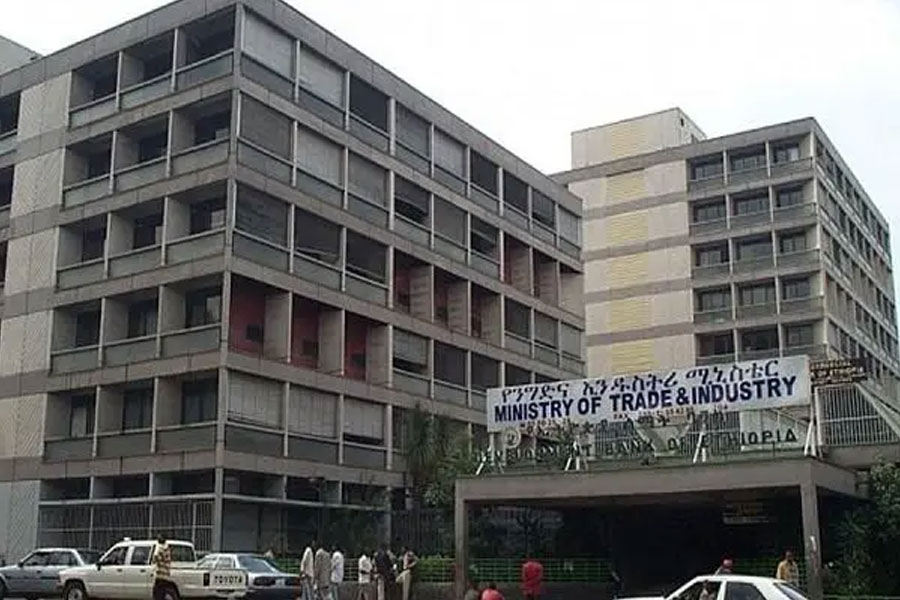
To curb the rapid urban expansion that follows an unplanned manner, experts at the Ministry of Urban & Infrastructure prepared a study with hopes of controlling and improving the spatial distribution across the country.
The six months long study was conducted in 10 regional states and two city administrations. It analysed the economic growth and the living space available to residents, taking into account the accessibility of basic services like transportation, housing, electricity, and clean water supply.
Officials at the Ministry hope to alleviate poor land use, inadequate infrastructure, and chronic housing shortage through a proper diagnosis of urban expansion.
Following the study, experts recommended a framework for future endeavours that prioritise vertical expansion and allocate 30pc of the floor space to housing. The proposed plan indicates that residential areas will make up to 65pc while manufacturing vicinities use 10pc of the area designated for housing.
Nesru Mohammed, the design expert of the economic infrastructure standardisation desk at the Ministry, said that cities should expand upward, adding height to areas and increasing economic and residential densities.
"It will address the challenges that come with population growth," he said.
According to Nesru, by calculating the land covered in an area to the population density for new expansions, it will be possible to create space for a person, demarcating generous urban boundaries and ideal measurements of the expansion.
Officials believe the study enhances the quantity and spatial distribution of urban floor spaces in cities for economic productivity and mobilise finance for urban investments in infrastructure.
Roads, as an essential part that make up a city, cover the 30pc of the space while the rest will be left open for green areas.
Urbanisation has been associated with high levels of economic growth, averaging 38pc of the GDP. With an estimated annual population sprawl of 4.5pc, the rate of population growth is outpacing the city's spatial expansion rate resulting in a deficient physical form.
According to Yasin Siraj, head of the economic infrastructure standardisation desk at the Ministry, unplanned urbanisation fails to serve the current rapid population growth.
"The goal is to control the spontaneous expansion," Yasin told Fortune.
A World Bank Study suggests over 90pc of the urban growth occurs in the developing world, adding an estimated 70 million new residents to the urban each year.
There are 4.4 billion people living in urban areas, projected to surpass two-thirds of the global population in two decades, where seven out of 10 people will live in the city.
In Ethiopia, the rate of urbanisation is growing at a 5.4pc every year, tripling the population by 2034, where 30pc of people will be living in urban areas by 2028.
The lack of floor space taking a toll on liveability in Addis Abeba inducing many dwellers into informal settlements, where 60pc of the population in the urban areas live in underdeveloped spaces.
The bustling capital city boasts a population migrating for opportunities and better quality of life. It has created a congested environment, nearing five million residents according to the World Bank.
Over the past years, the city has been making a concerted effort to improve urban transportation, through large investments in infrastructures, including roads, and a Light Rail Transit (LRT) system.
The steady influx of people has put tremendous pressure on cities where housing and land-use developments are taken on the basis of where available land resources are being used without any assessment of the economic impacts.
Tirumar Abate, state minister for Planning & Development, disclosed that natural and domestic disasters have contributed to internal migration which has led to the mismatch between the supply and demand in providing basic services for its people.
"The social and political upheaval created a huge gap moving in congruency with the plan," she said.
She told Fortune that political instability and economic distress over the past three years have made feasible economic planning almost impossible where several projects have remained unattended.
As the country has clogged back from a post-war and political instability era, she disclosed, the next three-year strategy carved out by the Ministry in terms of energy, housing demand, and transportation will begin to hold water.
Experts indicate that an integrated approach for the coordination of land-use development with transportation is a necessary pre-requisite.
Birhanu Zeleke (PhD), a transport management lecturer at Kotebe Metropolitan University, said that urbanisation has been growing in a rapid manner where it has become almost "inevitable".
He said the expansion has to accommodate population growth and should be done through improved standards and practices. However, he feels the planning has overlooked the transport sector where the low rates of motorisation and the congestion in the city suggest a mismatch.
"There is a fundamental shortcoming of integrating transport with other services," he said.
Economists contend social, economic, and political upheavals that drive migration should be addressed for lasting peace while economic restructuring is a pre-requisite for proper urban planning.
For Atlaw Alemu (PhD), an assistant professor at Addis Abeba University, the absence of security and certainty are the major causes of migration.
He reasons that urban planning should come after restoring peace and security for a long-term, resilient, and inclusive effect. He said that the urban areas are those that connect their growth to economic demand and then support it with comprehensive plans, policies, and investments.
"Urbanisation should depend on economic demand," he said indicating that planning should be able to address important prerequisites such as employment, dependable public transit, and access to essential services.
PUBLISHED ON
Jul 22,2023 [ VOL
24 , NO
1212]

Fortune News | Mar 28,2020

Radar | Jul 01,2023

Radar | Jun 12,2021

Radar | Sep 17,2022

Radar | Jan 18,2020

Radar | Mar 09,2019

Fortune News | Jan 02,2021

Radar | Sep 26,2021

Radar | Aug 29,2020

Fortune News | Nov 11,2023

Dec 22 , 2024 . By TIZITA SHEWAFERAW
Charged with transforming colossal state-owned enterprises into modern and competitiv...

Aug 18 , 2024 . By AKSAH ITALO
Although predictable Yonas Zerihun's job in the ride-hailing service is not immune to...

Jul 28 , 2024 . By TIZITA SHEWAFERAW
Unhabitual, perhaps too many, Samuel Gebreyohannes, 38, used to occasionally enjoy a couple of beers at breakfast. However, he recently swit...

Jul 13 , 2024 . By AKSAH ITALO
Investors who rely on tractors, trucks, and field vehicles for commuting, transporting commodities, and f...

Jun 28 , 2025
Meseret Damtie, the assertive auditor general, has never been shy about naming names...

Jun 21 , 2025
A well-worn adage says, “Budget is not destiny, but it is direction.” Examining t...

Jun 14 , 2025
Yet again, the Horn of Africa is bracing for trouble. A region already frayed by wars...

Jun 7 , 2025
Few promises shine brighter in Addis Abeba than the pledge of a roof for every family...